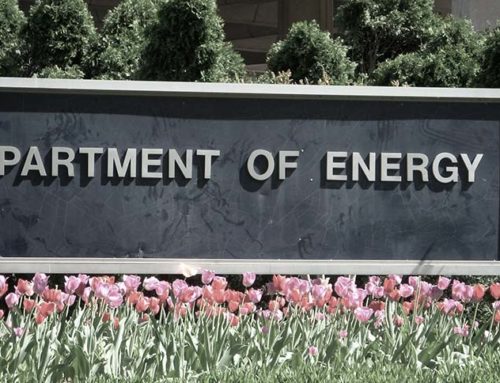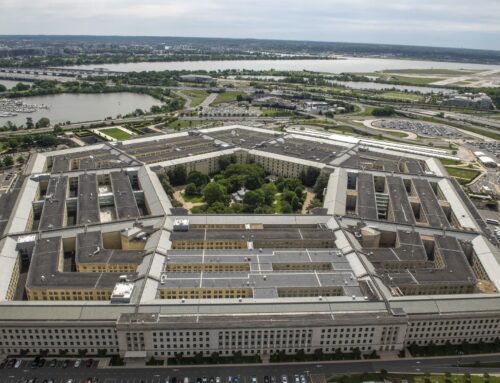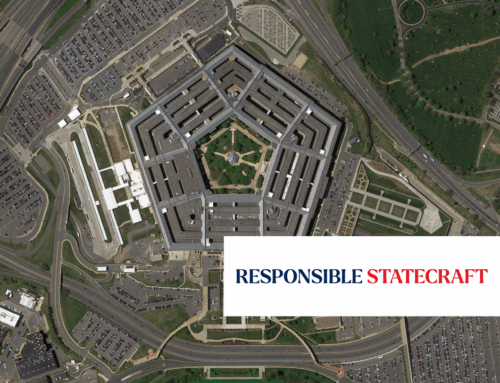When a high-stakes budget fight erupts in Washington, nearly every discussion devolves into a numbers game. Politicos on either side of an issue will pull figures out of a study or report, throw them together, and stir until they get the thickness they hope will stick in the minds of their colleagues. One of these budgetary food fights is throwing some needed light on a particularly confusing area of the budget: nuclear weapons.
Last month, Rep. Ed Markey (D-MA) wrote a letter to the Super Committee saying the hundreds of billions the United States plans to spend on nuclear weapons over the next decade is unnecessary and can be trimmed. Congressman Michael Turner (R-OH), chairman of the House Armed Services Strategic Forces Subcommittee and representative of a district that includes Wright Patterson Air Force Base, followed with a letter discounting Markey’s figures and placing them much lower.
Who is right? This would seem an easy question to answer: Just look up the annual budget for the National Nuclear Security Agency (NNSA), the office within the Department of Energy that oversees our nuclear weapons “complex.” But as it turns out, nuclear weapons functions are spread across multiple agencies, and no one in the government has ever added them up in one place.
A 2009 study on nuclear security spending (to which TCS contributed) found that annual operations and maintenance costs for nuclear weapons exceeded $29 billion per year, not including classified funding. That constitutes 67 percent of the DOE budget and 7 percent of the DOD budget. If you include all weapons-related spending, i.e. costs that would not exist if it were not for nuclear weapons, that number jumps upwards of $50 billion. These costs include funding for nonproliferation programs and cleaning up environmental waste resulting from weapons development.
No President or Congress has ever attempted to create a unified, comprehensive nuclear weapons budget, however. The closest we have is the annual budget for NNSA and what the Defense Department calls a “major force program,” which neglects many overhead, support, and research costs plus all costs for tactical nuclear weapons.
Whether or not you think we need nuclear weapons, you do need to know how much they cost. Resources are always part of strategy, and you can’t figure out your strategy without knowing how much you spend and where. It’s hard to ride herd over any government function if you don’t really know what you spend on it.
A deeper problem is the amount of tax dollars wasted in our nuclear weapons complex. The Government Accountability Office (GAO) has included DOE on its list of “high-risk” programs for more than 20 years due to financial mismanagement. NNSA has been singled out as particularly problematic, with the GAO stating that the agency “struggle(s) to develop credible and reliable cost estimates, meet cost and schedule goals on projects, and overcome other related project management challenges.” Cost overruns on NNSA and environmental management projects reviewed by the GAO in 2007 totaled $14 billion.
Exhibit A of this syndrome is the Chemistry and Metallurgy Research Replacement (CMRR) project currently under construction at Los Alamos Laboratory in New Mexico, the price tag of which has already increased to $6 billion–more than ten times its original estimate. Or take the Mixed-Oxide Fuel Fabrication (MOX) facility in South Carolina, toward which taxpayers have already paid $3 billion of its total $5 billion cost even though no customers exist for the recycled plutonium fuel it is supposed to sell.
There’s no excuse for this kind of waste, national security or not. Demanding fiscal accountability from our government won’t harm our security – indeed, it will make us safer by ensuring that high-priority projects are finished on time and on budget and by getting unnecessary programs off our books.
###
TCS Quote of the Week
“The fact of the matter is, you can't do this with just reducing spending, you can't do it with just reforming entitlements, and you can't just do it on the revenue side. It takes a combination of all three.” – Saxby Chambliss, (R-GA) (Government Executive)










